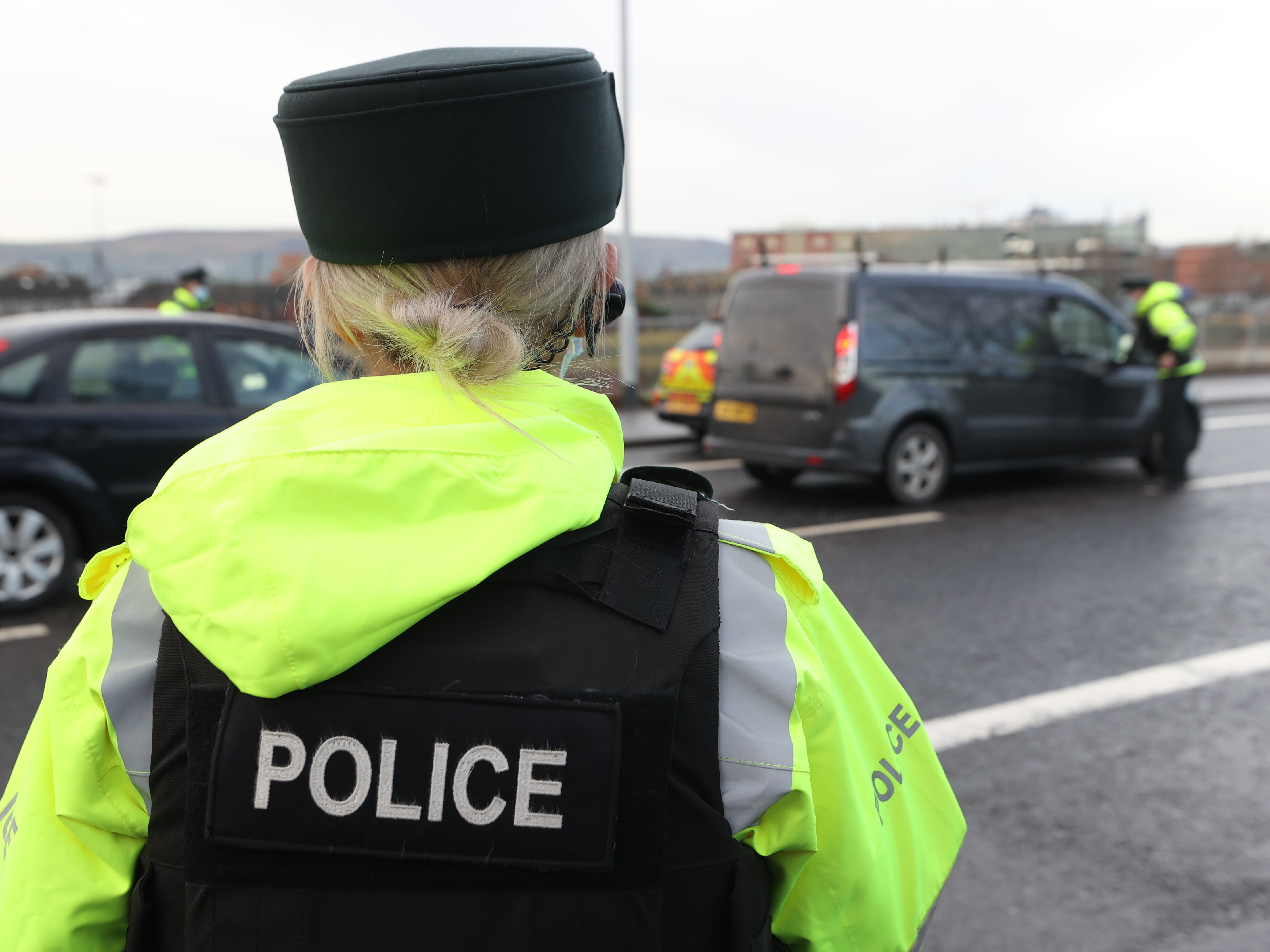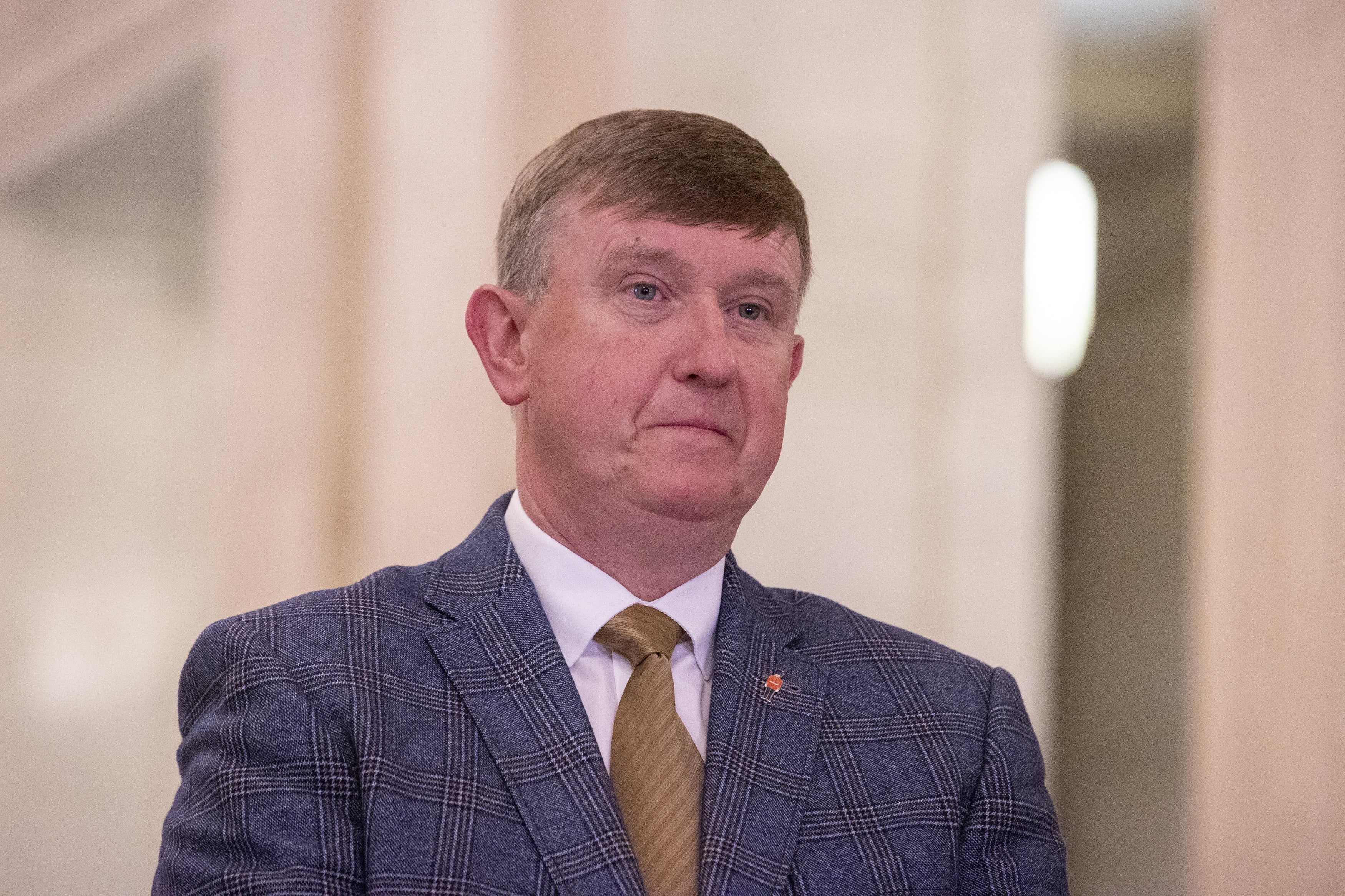
Police officers in Northern Ireland responded to almost 2,000 calls sent to them in recent months because the ambulance service could not attend, the PSNI chief constable has said.
Simon Byrne made the remarks as he briefed the Justice Committee on the “dire fiscal outlook” which he said the PSNI is facing as a result of the draft budget 2022-25.
Mr Byrne told MLAs he was struggling to see how a balanced budget could be achieved, and said he had never faced a similar situation in his policing career.
A three-year budget for Northern Ireland, which envisages a significant reconfiguration of Executive spending priorities to boost investment in the region’s under-pressure health service, is currently out for public consultation.
However, the DUP decision to withdraw Paul Givan as First Minister and the collapse of the powersharing executive has thrown the proposed multi-year budget into doubt.
Mr Byrne faced questions about the potential impact of the draft budget which Justice Minister Naomi Long has said will mean a 2% cut for her department.
Our estimate will be 1,000 less officers over the next three years, which equates to one officer less per day every day for the next three years
He told MLAs: “As things stand we face a dire fiscal outlook and policing inevitably will look and feel different if the circumstances don’t change.
“I have got a real dilemma in terms of how you balance the books versus delivering the policing services that the public expect.
“The draft budget position is so stark that I am finding it difficult to see how a balanced budget can be practically delivered next year and in the three years thereafter.”
Mr Byrne added: “Even the status quo is challenging because if the budget rolls over in the circumstances we are currently in, given political uncertainty, we face the same pressures because of the gaps in non-recurrent funding.
“Our estimate will be 1,000 less officers over the next three years, which equates to one officer less per day every day for the next three years. We estimate the loss of over 350 police staff.
“I don’t think ever in my policing career at a senior level have we faced problems like this.
“The gap between public expectations and demands on our time will grow larger.”

The chief constable said: “Ministers have a decision; give us more money or accept that some things will take longer and be done with less quality or indeed not at all.
“There needs to be political realism and transparency over what this budget will mean and how much risk and harm we are prepared to accept.”
Committee chairman Mervyn Storey said: “You paint a very stark situation where over a period of three years we could move to have 1,000 less police officers.”
DUP member Peter Weir asked: “Could you give us more of the thinking around the direct services to members of the public you would potentially have to look at?”

Mr Bryne said: “Policing won’t stop. We have still got £760 million to spend every year, but there will be difficult choices.
“Clearly the 999 calls are a critical contract with the public. We want to try and maintain that.
“Inevitably if we do that something else will have to regress backwards.
“Other non-urgent work may have to be dealt with differently. It could be pushing work more towards partners, for example how we deal with some forms of anti-social behaviour.
“How we police roads would probably change simply because we won’t have enough people.”
He added: “In the last few months we have dealt with nearly 2,000 calls that have been sent to us from the ambulance service where they couldn’t attend.
“We have gone to all of those calls. I think from memory in 50% of those calls the ambulance service never made it at all.
“It has meant police putting people to hospital, into their police cars and taking them there.
To try and work out how you wrestle with some of these different elements is going to be difficult
“That must raise some questions about the whole logistics of that part of the system, but it presents moral dilemmas because some people will say just stop doing something, but you be that call taker at 3am when someone is in distress or someone is injured or hurt, are we really going to say we are not coming because we are the police and not an ambulance when someone’s life is in danger?
“To try and work out how you wrestle with some of these different elements is going to be difficult.”
Sinn Fein vice chair Sinead Ennis said a number of arms-length bodies had been “genuinely spooked” by the draft budget and questioned the whether the Justice Department would face a cut in real terms.
She said the Justice Minister should appear before the committee to answer questions on the issue.







